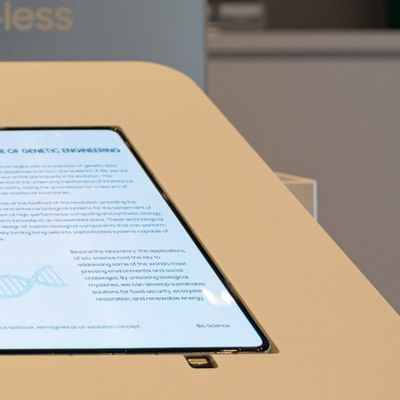
ZDNet reports that a MacBook running Safari was the first machine to fall victim to a security exploit in the PWN2OWN hacker challenge at the CanSecWest conference in Vancouver, Canada. French security researchers compromised the MacBook and launched code within five seconds of contacting the machine, winning a $15,000 cash prize and a new 13-inch MacBook Air for their efforts.
VUPEN co-founder Chaouki Bekrar lured a target MacBook to a specially rigged website and successfully launched a calculator on the compromised machine.
The hijacked machine was running a fully patched version of Mac OS X (64-bit).
In an interview with ZDNet, Bekrar said the vulnerability exists in WebKit, the open-source browser rendering engine. A three-man team of researchers spent about two weeks to find the vulnerability (using fuzzers) and writing a reliable exploit.
While Bekrar noted some difficulties in preparing the exploit due to a lack of documentation on how to exploit 64-bit Mac OS X code, his team was ultimately able to bypass several anti-exploit tactics included in Mac OS X to demonstrate how a machine could become comprised simply by visiting a malicious webpage and without crashing the browser.
Macs have become popular targets for researchers seeking to find security holes, with CanSecWest being a major forum for discussion and demonstration of their work. In 2007, the conference sponsored a "Hack a Mac" contest with a $10,000 cash prize, although organizers did have to loosen the contest rules before researchers succeeded in compromising a MacBook.
The following year, a MacBook Air was the first to be compromised at PWN2OWN, falling victim to a exploit initiated through Safari. Apple released a Safari update just a few weeks later to address that issue. And in 2010, noted researcher Charlie Miller used the conference to expose 20 zero-day holes in Mac OS X, claiming that Mac users' infrequent run-ins with hackers have primarily been due to "security by obscurity", with most malicious hackers preferring to attack Windows platforms with substantially larger user bases.
Notably, Apple is said to have reached out to security researchers for the first time with the initial developer build of Mac OS X Lion, inviting them to test out the forthcoming operating system in hopes of finding and patching as many holes as possible before Lion reaches customers' hands later this year. Miller and some other researchers have, however, scaled back their reporting of security flaws to Apple in the face of its refusal to match other companies' offerings of cash rewards for finding such holes.























